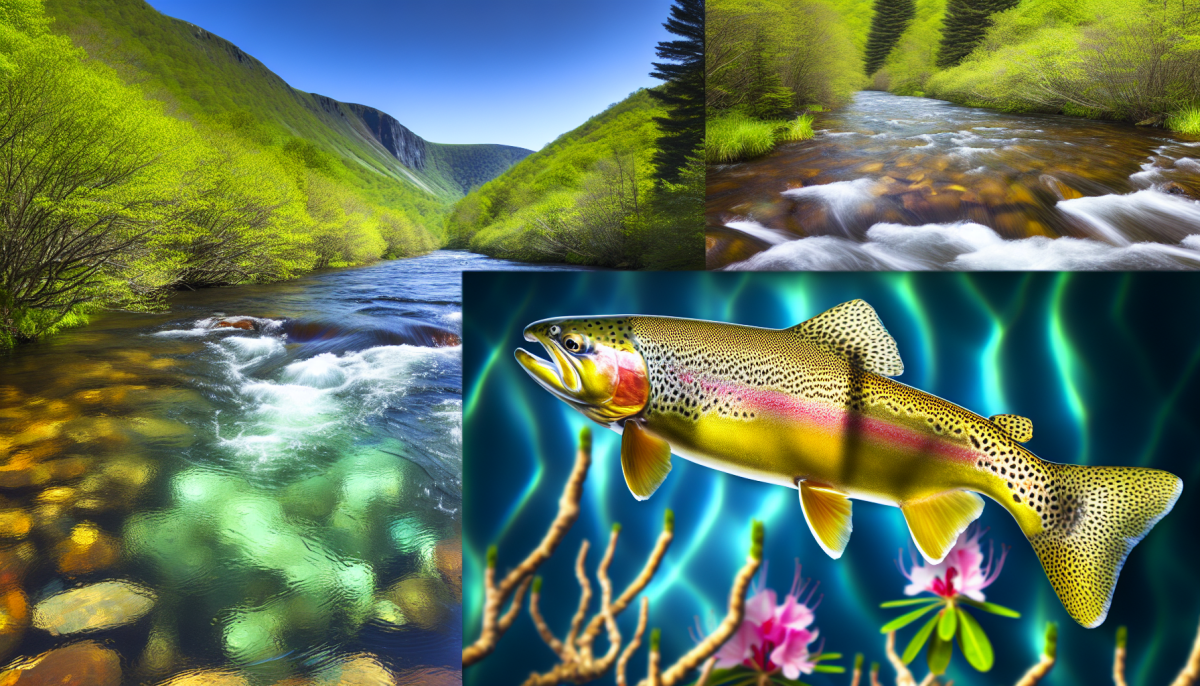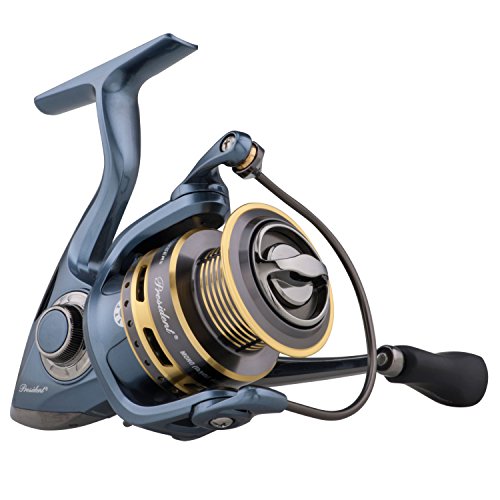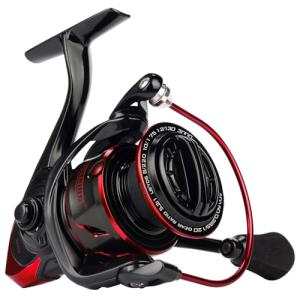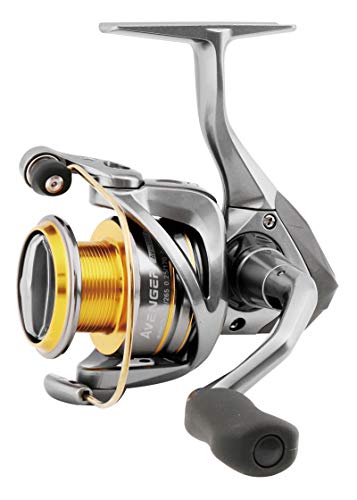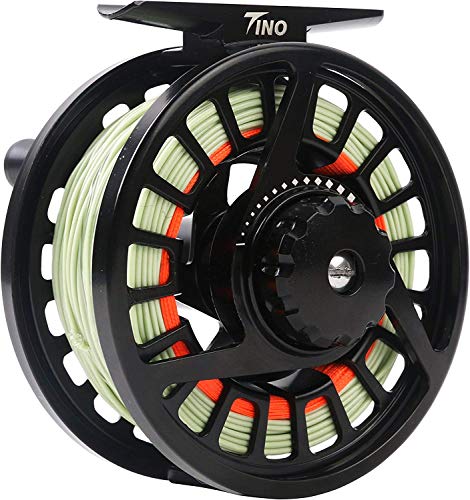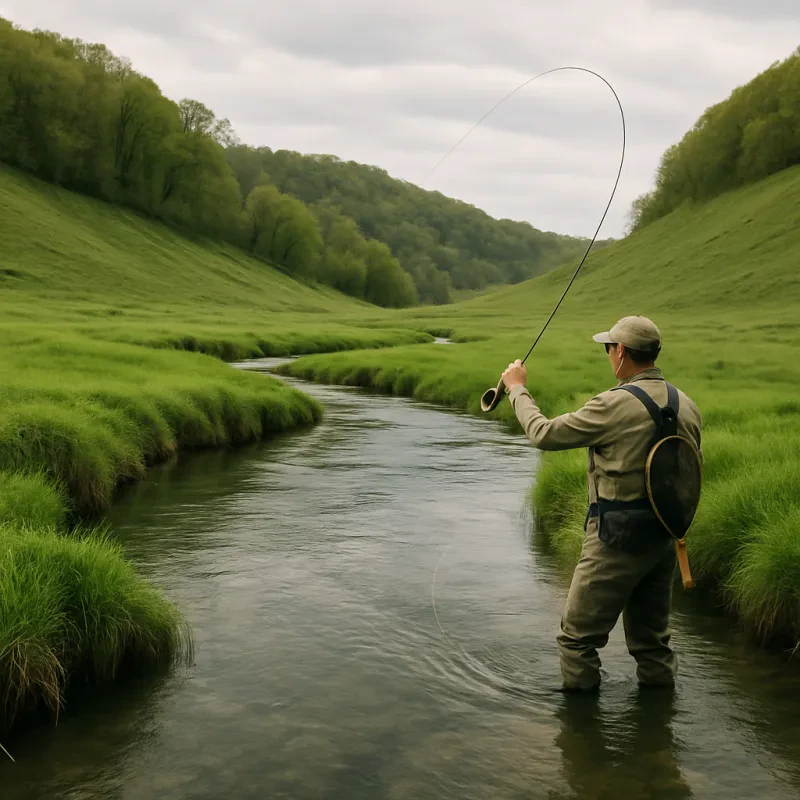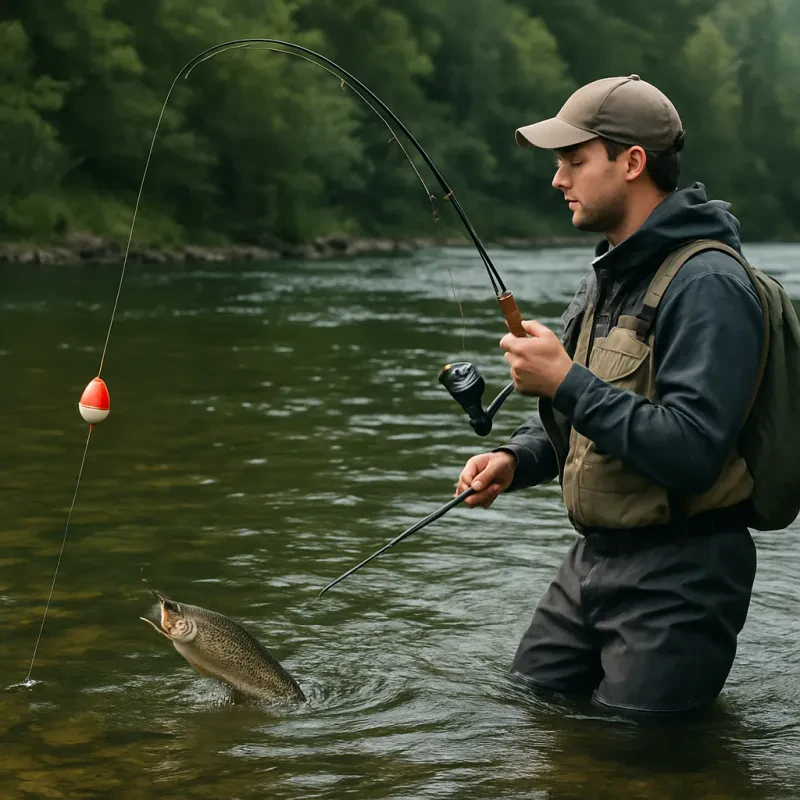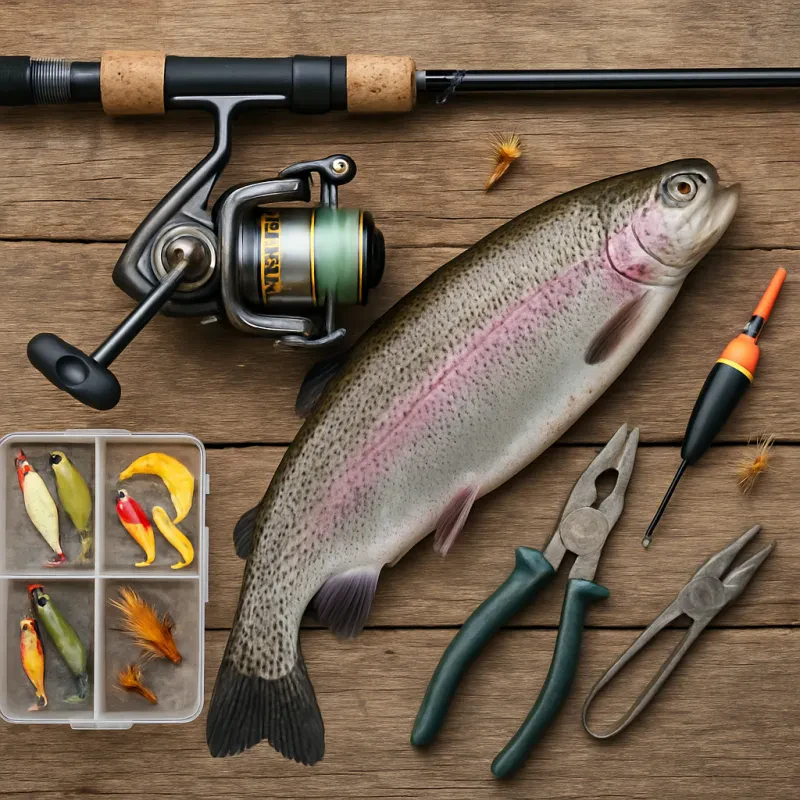When you think of fishing in West Virginia, golden trout might not be the first species that comes to mind. However, for those in the know, the excitement of spotting these shimmering beauties in their natural habitat is truly unbeatable. Golden trout are known for their vibrant colors and unique beauty, making them a sought-after catch for anglers exploring the streams and lakes of this stunning state.
If you're planning a trip to discover golden trout in West Virginia, it's essential to know where to look. These fish thrive in cold, clear streams with plenty of cover, such as fallen logs and rocks. Popular spots include the high elevation creeks in the Monongahela National Forest and areas near the Cranberry Wilderness. These locations are not only great for fishing but also boast breathtaking scenery that’s perfect for a weekend getaway.
Timing is key when it comes to catching golden trout west virginia. The best months to fish for them are late spring through early summer, when the water temperature is just right. Early morning and late evening are often the most productive times, as these fish are more active during cooler parts of the day. Don't forget to bring a light tackle setup; golden trout can be quite selective, so be prepared to try different baits and lures until you find what works.
Don’t overlook the value of local fishing regulations and conservation efforts when pursuing golden trout in West Virginia. To ensure the sustainability of this beautiful species, it's crucial to follow catch limits and practice catch-and-release when necessary. Connecting with local fishing groups or guides can also provide insights into the best practices for fishing while respecting the environment. With a little preparation and respect for nature, your quest for golden trout in West Virginia will be a memorable adventure!
Ideal Habitats for Golden Trout
When it comes to finding the perfect home for golden trout in West Virginia, there are a few key habitats to keep in mind. These fish thrive in cool, clear streams and rivers, especially those that flow through the mountainous regions where the water stays crisp all year long. The high elevation streams offer the right mix of temperature and oxygen levels, making them just right for golden trout to flourish.
Look for alpine lakes, as they also serve as great habitats. These still waters often have a healthy population of insects and smaller fish that golden trout love to munch on. Plus, the tranquil surroundings provide the perfect environment for spawning, ensuring a healthy future for their populations. Some of the best spots in West Virginia are nestled in the Monongahela National Forest, where you can find beautiful, untouched streams full of these stunning fish.
Another thing to watch for is the water quality. Golden trout prefer clean, unpolluted waters, so streams with good flow and low sediment levels are ideal. They enjoy areas with plenty of cover, like fallen trees or rocky outcrops, which give them a sense of security. If you’re on the lookout for golden trout West Virginia, keep your eyes peeled for these spots. You might just find a hidden gem where these colorful fish thrive.
Lastly, temperature is crucial. Golden trout love cool water, generally around 50 to 60 degrees Fahrenheit. They can be sensitive to warmer temperatures, so during the hot summer months, look for them in the cooler sections of streams or around shaded areas. Choosing the right fishing time, like early morning or late evening, can also improve your chances of spotting these beautiful creatures. With the right knowledge about their habitat needs, you'll be well on your way to an exciting fishing adventure in golden trout West Virginia.
Fishing Techniques for Success
When it comes to catching golden trout in West Virginia, having the right techniques can make all the difference. These beautiful fish, known for their golden hue, can be a bit tricky to lure out, but with some solid strategies, you can boost your chances of having a successful day on the water.
One effective method is to use lightweight tackle. Golden trout are often found in the clear, cold waters of the state’s streams and lakes, so a lighter setup helps you avoid scaring them away. Try using a light spinning rod paired with 4-6 lb test line. This way, you’ll have enough sensitivity to feel those subtle bites without being too intrusive.
Another technique that works wonders is to mimic the natural prey. These fish love to snack on insects and small baitfish, so consider using small spinners or lightweight flies. Colors like gold, silver, or even natural patterns tend to catch their attention. Don’t forget to fish during the early morning or late evening when they’re more active and likely to bite.
Drifting baits like worms or small minnows can also be productive. Make sure to cast upstream and let your bait drift naturally with the current. This gives it a lifelike motion, making it more enticing for the golden trout of West Virginia. Patience is key, so don’t rush the process; sometimes, it takes a bit of time for them to find your offering.
Finally, don’t underestimate the importance of location. Research spots known for golden trout in West Virginia, such as certain catch-and-release streams or higher elevation lakes. Local knowledge can be invaluable, so chatting with fellow anglers or checking local forums can help you find the best places to cast your line.
Conservation Efforts for Golden Trout
Golden trout in West Virginia have become a focus for many conservation efforts aimed at preserving this beautiful and unique species. Their striking colors and delicate habitats make them a treasure worth protecting. Various organizations and local communities have stepped up to ensure that these fish can thrive in their natural environments.
One of the key efforts includes habitat restoration. Streams and lakes where golden trout west virginia are found have been cleaned and revitalized to remove pollutants and invasive species that threaten their survival. By restoring these natural habitats, it creates a healthier ecosystem not just for golden trout, but for all the wildlife that depend on these waters.
Another important aspect of conservation is education. Local fisheries and environmental organizations host workshops and programs to teach anglers and the public about the importance of sustainable fishing practices. This helps ensure that when people catch golden trout in West Virginia, they do so responsibly, allowing future generations to enjoy their beauty.
Finally, ongoing research plays a significant role in conservation efforts. Scientists study the breeding habits and health of golden trout populations in West Virginia. The data collected helps inform decisions on fishing regulations and support measures that enhance their survival. Knowledge is key to effective conservation, and researchers are working hard to protect this beloved species.
